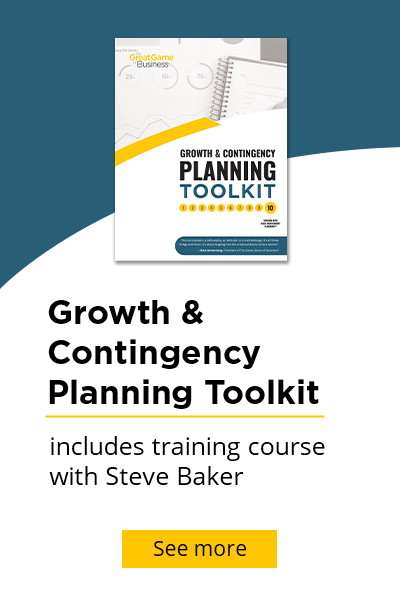
Learning and development are more than just buzzwords. L&D offers a vibrant retention and recruiting tool to keep your employees engaged and satisfied at your organization while improving their performance and productivity.
One aspect of a learning and development program at your organization comes from an automated, self-service software package called a business learning platform, learning management system (LMS), or eLearning platform.
This tool provides a powerful, one-stop place for internal learning modules that can significantly contribute to the training and development of employees. The overall goal is to foster growth within your organization while retaining and developing top talent.
Discover 14 ways a business learning platform or LMS can help develop and empower your employees.
1. Centralized Learning Hub
A business learning platform serves as a centralized repository for all training materials, resources, and courses. It makes it easy for employees to access training content in one location. As a central hub, an LMS also fosters a quick way to assess someone’s scores and progress through learning modules, training, and quizzes.
2. Scalability and Consistency
Whether you have a small team or a large workforce, an LMS can scale to meet your needs. It ensures that all employees receive consistent training, regardless of their location or role. Everyone in your organization goes through the same learning process from start to finish, making it easier to assess someone’s knowledge individually and as compared to others.
3. Customized Learning Paths
Learning platforms allow organizations to create customized learning paths for different job roles or departments. Employees can follow tailored training programs that align with their responsibilities and career development goals.
A manager would follow a different path than an entry-level employee, while someone in accounts receivable would have a different learning path than someone on a factory floor. Yet some learning modules would be the same, depending on your company’s needs.
4. Self-Paced Learning
Employees can learn at their own pace, which is especially beneficial for adult learners with busy schedules. This flexibility accommodates various learning styles and ensures that individuals can devote the time needed to grasp complex topics. If you invest in an LMS with mobile functionality or remote access, employees can log in from anywhere to continue learning (after clocking in, of course).
5. Accessibility and Remote Learning
Learning platforms enable remote and mobile learning, allowing employees to access training materials from anywhere, anytime. This is essential for companies with distributed teams or remote workforces.
But it’s also handy for people who need documentation or instructions right in front of them to do their jobs correctly. For example, your LMS has instruction manuals, guides, diagrams, and photos uploaded to it for equipment in your facility. New hires or mechanics not experienced in certain equipment can call up the manuals from a mobile device as they look at the machinery. This reduces errors and decreases downtime on vital equipment.
6. Tracking and Assessment
Business learning platforms provide robust tracking and assessment features. Managers can monitor employee progress, view quiz and test scores, and identify areas where additional training is required. You can set alerts when someone completes a module, earns a certification, or requests additional information.
7. Certification and Compliance
An LMS can automate the certification process. It ensures that employees complete mandatory training and comply with industry regulations and company policies. You can create your own certifications in-house or link to/integrate external certifications from your chosen compliance or education provider.
8. Feedback and Surveys
Businesses can collect feedback and insights from employees through surveys and feedback forms integrated into the platform. This data helps improve the quality of training programs. For best results, try keeping the feedback anonymous. It will help make the feedback more genuine when there aren’t fears of outing someone’s opinion or developing negative attitudes towards someone for being open and honest.
Feedback also promotes employee engagement. Your HR team can determine how engaged an employee is with their job through several means, such as grades and learning improvement, but surveys are also important. A survey can help you ascertain how someone feels about their job.
9. Resource Management
LMS platforms often include tools for managing training resources, such as course materials, documents, and multimedia assets. This makes it easy to update and maintain content. A robust business learning platform allows employees to recall these resources quickly, especially through keyword searches when they may not recall the precise learning module where they saw the information, diagram, or illustration.
10. Cost-Efficiency
Traditional training methods can be costly in terms of materials, travel, and time spent away from work. Learning platforms reduce these expenses, making training more cost-effective. When you consider the scalability and customization options you have at your fingertips, the ROI of these systems becomes clear.
You won’t have to reinvent the wheel every time a new hire onboards. The LMS works for many years to come, especially with software upgrades and the ability to change administrative access as people depart.
11. Integration With HR Systems
Many LMS platforms integrate with human resources (HR) systems, streamlining the onboarding process and ensuring that training aligns with an employee's career path and goals. Robust business learning platforms can create and send out rewards, create a points system leading to bonuses, and connect with other third-party platforms like LinkedIn, HubSpot, or other resources to showcase someone’s knowledge base on various topics.
12. Analytics and Reporting
Learning platforms generate detailed analytics and reports, allowing organizations to measure the impact of training programs and make data-driven decisions to improve them. As an example, individual performance can be assessed over time. You can also measure if learning has improved year over year if you require annual certifications.
As a group, you can measure success as a whole to develop average passing scores. Once you have these metrics in place, your LMS gets more accurate when trying to assess who is above the average score and who is below it. Seeing this data can help your team determine if your learning modules are too easy or too hard, allowing you to adjust your tests. Once you do this, you can then see how your staff adapts.
13. Continuous Learning and Development
Beyond initial onboarding, learning platforms support continuous learning and development. Employees can access a library of resources to expand their knowledge and skills as their careers progress. It’s also adaptable as your company evolves, develops new concepts, purchases new equipment, and expands into new markets. For instance, your company wants to move into South American countries to sell your products or services. One new learning module would be helping to teach relevant staff the culture and language of certain countries.
14. Multiple Languages
For multinational companies, learning platforms can provide training content in multiple languages, ensuring that employees worldwide can access training materials in their preferred language. This kind of training offers an important way for your company to show international employees that you care about their training by offering tools in a way they can most properly understand them.
The Right LMS Can Help Train, Retain, and Engage With Employees
The right business learning platform offers a comprehensive and efficient solution for training and developing employees. It enhances accessibility, engagement, tracking, and customization, ultimately leading to a more skilled and capable workforce, improved employee retention, and better organizational performance. You’ll have a happier and more satisfied workforce on hand.
Courses Available From The Great Game of Business
The Great Game of Business offers courses to help your organization grow and learn. Although we aren’t a full-fledged LMS, we do offer several training courses to help your employees learn about general business concepts.
Financial Literacy Course: Open the Books & Teach the Numbers
Featuring our Sally's Grooming workbook, our basic financial literacy workshops are designed to educate employees on the key financial metrics of a business in a non-threatening way. This training uses plain language and easy-to-understand examples through a real-life scenario of starting a dog grooming business, including borrowing capital, repaying loans, forecasting, variance analysis, monitoring cash flow, understanding financial statements, and more. This course applies to all industries, but the example company is service-based.
An Introduction to the Great Game of Business
New to the concepts of the Great Game of Business or need a refresher on the concepts? This introductory course will share a variety of resources to get someone up-to-speed about what a GGOB Culture is all about.
MiniGames™ Course
MiniGames are proven to drive results, increase business literacy, build teamwork, and create an environment where winners are recognized and rewarded for generating results. In this training, participants will learn the guidelines for an effective MiniGame and apply that knowledge directly by building a MiniGame.
The Fundamentals of Bonus Planning: Provide a Stake in the Outcome
This on-demand training course equips you with the knowledge and tools necessary to design a bonus plan that not only rewards employees but also drives the overall success of the company. How do you balance a strong incentive for your team while making investments back into the company?
Get in the Game™ Course: 10 Steps of Implementation
This training, led by VP of The Great Game of Business, Steve Baker, provides pre-recorded impactful training sessions that include a detailed look at Great Game’s “10-Step Approach to GGOB Implementation" at your own pace! Participate in the course for an in-depth view of open-book management and how they can effectively play The Game in their organizations.
.png)






.png)




-5.png)

